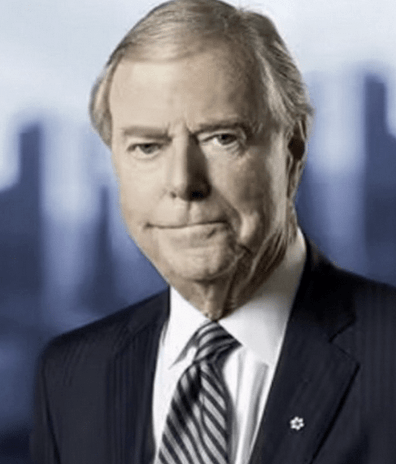The New State of Political Play in Carney’s Canada

By Don Newman
April 29, 2025
Mark Carney told Canadians that his career as a central banker dealing with international financial crises had made him into a skilled negotiator. It was the argument he used to convince as many Canadians as possible that he was and is the man to deal with an unpredictable, unreliable, aggressive, and often uncontrollable President Donald Trump.
Trump has slapped tariffs on Canada’s automobile, aluminum, steel and other exports to the United States as part of his world-wide upending of America’s trading relationships and more tariffs are pending. And he has repeatedly said that Canada should cease to exist as an independent, sovereign country and instead join America as the 51st state. Trump repeats that proposal even though in Canada, political leaders and most citizens have expressed outrage at the idea.
Trump’s tariffs and rude and improbable designs on Canada were the threat against which Carney and the Liberals fought the election. And it worked. The Liberals won.
But they did not win quite enough to form a majority government, which would have given them a free hand getting legislation through the House of Commons and enacting their program. Instead, now Carney will have to demonstrate his negotiating skills closer to home as the Liberals deal with one or more of the other parties in the House to get legislation passed and their program adopted.
With 169 seats compared to 144 seats for the Conservatives, the Liberals are three seats short of the 172 needed for a majority government. The rest of the Commons will include 22 members of the Bloc Québécois, seven New Democrats, who will officially sit as independents since the party lacks the 12 members necessary to be recognized as an official party, and long-time Green MP Elizabeth May.
We’ve been told that between the Trump threat and the collapse of the existing international order, we live in a new world. Maybe in the conduct of Canadian political life, a new order will emerge as well.
Carney was quickly at work the day after the election, with a phone call from Trump. They agreed to an in-person meeting in the near future. The newly elected Carney government is expected to start its first Parliamentary session around the middle of May. It is planning to bring in a budget, one that will include a higher deficit but also the promised middle-class tax cut, by Canada Day. The votes on the budget will be confidence votes, which means if the Liberals lose them, the Carney government would fall, and we would be back in another election.
But that is very unlikely to happen. Conservative Leader Pierre Poilievre has lost his seat, and the party will have to choose an interim leader. NDP leader Jagmeet Singh also lost his seat in his party’s rout and resigned while the votes were still being counted.
And, Bloc Québécois Leader Yves-François Blanchet said Tuesday that he’ll support the government for the foreseeable future, with certian concessions on French-language protections, Quebec immigration, the province’s Bill 21 secularism law and pipelines for the sake of unity and stability.
Traditionally, the governing party supplies the speaker in the House of Commons. It’s an important job that if not done well can lead to chaos. Though elected from the ranks of MPs, the speaker becomes neutral when he or she takes the chair and does not vote in the House unless there is a tie. To not lose a vote in the House, the Liberals may turn to one of the “independent” New Democrats or perhaps Green Leader Elizabeth May to serve as speaker.
Still, the Liberals will need partners. The traditional sources of support would be among the scattered handful of New Democrats, and/or May. But on a number of major economic and energy issues, the Liberals and the Conservatives are actually closer together. The government and the Official Opposition passing legislation would not be unprecedented but it would be unusual.
Time will tell, and soon enough.
We’ve been told that between the Trump threat and the collapse of the existing international order, we live in a new world. Maybe in the conduct of Canadian political life, a new order will emerge as well.
Policy Columnist Don Newman is an Officer of the Order of Canada, and a lifetime member and a past president of the Canadian Parliamentary Press Gallery.
